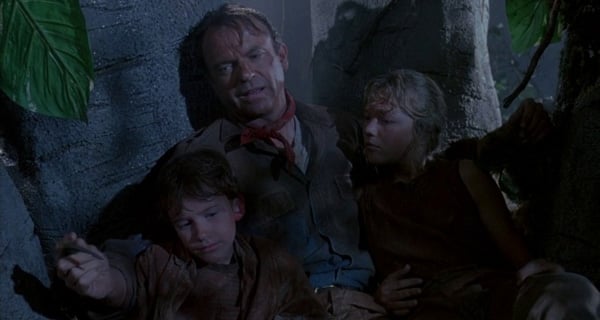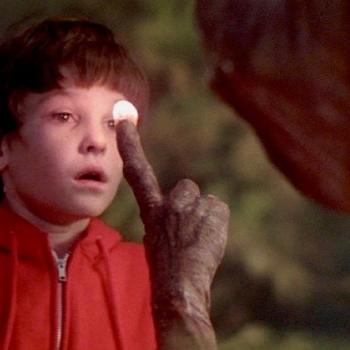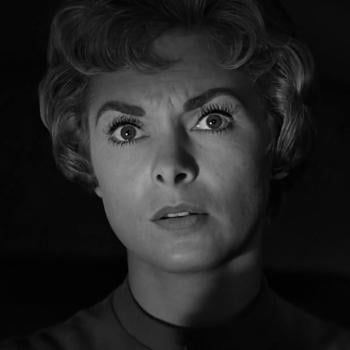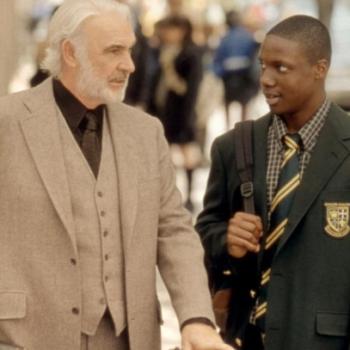
Well, Jurassic World: Dominion comes out really soon, so naturally I’ve been thinking about the 1993 classic these last few weeks. Like, more than usual. I’d imagine many of us will be revisiting the series over the next little bit, if we have not started already. So why not take a moment and review the film, and why not do it through a spiritual lens?
Because the movie’s religious overtones are at once up and front while also buried under subtext. The movie is premised on man attaining godlike ability to not just create life but build entire ecosystems. Could mankind pull it off, and what would that even mean?

The creation in this film is glorious to behold. The dinosaurs are beautiful, and the film crowns their majesty with one of the most iconic film scores of all time. The part of Hammond that isn’t crazy for trying to pen velociraptors is right to marvel at the nobility and power of the dinosaurs.
But the film also punishes the mortal impulse to claim the gift of creation for itself. Hammond’s project does not go over well–it results in the savage death of multiple people, actually. The park’s security measures prove insufficient, resulting in island-wide mayhem as nature’s most powerful entities roam about freely.
The story frames the human pursuit of scientific dominance–focalized through Hammond’s genetic experiment–as a mortal transgression, a modern-day Tower of Babel. The park breaks barriers that were never meant to be crossed. As Ian Malcom puts it so eloquently, “your scientists were so preoccupied with whether or not they could that they didn’t stop to think if they should.” Mankind tries to wrap its hand around divine power, and when divine power proves to be too much for them to handle, the arrogant mortals are punished by their own arrogance, punished for “playing God.”

But at the same time, it’s not as straightforward as God not wanting to share his toys with his mortal kids. The film also explores one brand of godliness that God invites us to partake in freely: the position in which he takes the most pride, that of parenthood. At the start of the film, Grant doesn’t have the patience or temperament for children, but circumstances force him to emerge as a protector to the two kids placed in his care. Lex and Tim come to depend on Grant for safety as we depend on our God. And it turns out that parenthood actually sits pretty well on Grant.
There’s something to be said for the act of creation inherent in introducing a new human life to the world and how that overlaps with the act of creative act of reviving dinosaurs, but the film also doesn’t limit the honors of fatherhood just to biological parents. Grant isn’t the literal father of Lex and Tim. He just rises to the occasion.

This is a motif that follows the films even through the Jurassic World films. Owen is presented as something of a father figure to his raptor pack, and Claire has to learn to give time and attention to her own family. This is made even more prominent in “Fallen Kingdom” with Owen and Claire adopting Maisie. The franchise has always been at its strongest when it keeps this emotional pulse in sight.
Mankind seeks to attain godhood by subduing the fabric of nature and creation to its will, to its downfall. The irony being that the closest one can actually attain to godliness is actually much more freely available. (Not to mention, elicits far fewer fatalities.) It’s within anyone’s reach to become a nurturer, protector, and teacher to someone who needs help achieving their divine potential.
What could be more godly than that?














